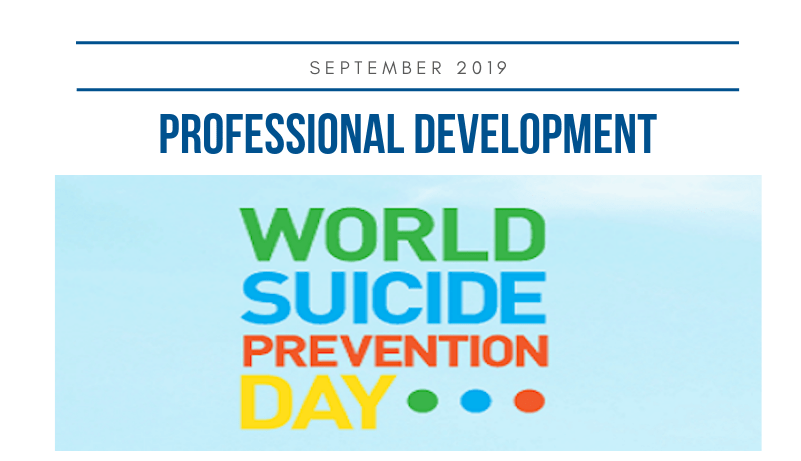
Suicide is never an easy topic to discuss, whether with clients, friends, or yourself. But that conversation can also be the reason someone doesn’t follow through with a plan or learns about suicide, so they can spread information to other youth. Here are some much needed tips for successful conversations with youth about suicide.
Starting the Conversation
- I’ve noticed you’ve been down lately, are you doing alright?
- For some people when they feel down, they also think about death. Are you having thoughts about wanting to die?
- Do you have thoughts about death?
- You’ve mentioned previous suicide attempts, everything you have going on can be really stressful, are you having thoughts about wanting to die or hurt yourself? (OR use a specific example instead of “everything you have going on”– starting counseling, being in the crisis shelter, staying at TLP, living on the streets)
Follow Up Questions if they say ‘yes’
- Do you want to die? Or do you want to take action to end your life? OR Have you ever thought about how you would die?
- Is this something you think about often?
- Does anything you do make these thoughts go away?
- Have you thought about how you might harm yourself?
- Can you get access to pills, guns, knifes, or other weapons easily?
- Do you know anyone who has died by suicide?
Having the Conversation
- Avoid using the word “committed” suicide, instead say “died by suicide”, as this decreases the negative stigma and recognizes when someone is suffering from significant mental health — suicide is a consequence & symptom of their disease.
- Tell them lots of people who suffer from mental illness, like depression, struggle with thoughts of death or wanting to harm themselves. These thoughts can be hard to turn off or ignore.
- Encourage them to find positive supports and treatment.
- Ask them how people have responded to previous suicide attempts.
- Help them identify what they wish could be different and what they can do about it.
- Be careful not to judgment them or make assumptions.
- Be realistic about what you can do — do not make promises.
- Use the word suicide and make sure they understand what it means.
- Be their ally. Share some strengths they have. Give them resources.
- For resources, keep reading!!!
After the conversation
- Make sure the client stays in sight and is away from weapons & other things that can be turned into a weapon (such as a sharpened pencil or scissors)
- Contact on-call or (in emergencies) the police
- If possible, ask another staff person to dial, while you stay with the client (or vise versa)
- Use the client’s words to tell on-call or the police what risk (how likely) a client is to hurt themselves, if they have weapons or a plan
- Safety plan with the client — this includes finding helpful activities, warning signs, and helpful adults they can call for help
- DOCUMENT, DOCUMENT, DOCUMENT!!!!!
Warning Signs
- Change in behavior
- Not wanting to be around others
- Giving away possessions or saying goodbye
- Feeling sad, down, blue, or depressed & it doesn’t get better
- Talking about loneliness or feeling alone
- Not thinking about their future positively or saying things like “I don’t have a future” or “what future”
- Talk negatively about themselves — low self-esteem
- Refuses to participate in coping skills
- History of mental health or trauma (like abuse) – LGBTQ+ & Children who were adopted are at an increased risk for dying from suicide
- Feeling rejected
- Feeling hopeless , helpless, or trapped
- Mood swings
- Not having anywhere to go or having any supports
- Being in an abusive relationship
- Risky behaviors, such as drinking or doing drugs for the first time when sad
- Goes from sad to energizer bunny happy or from happy to sad (this will appear as a cycle and often with out cause or trigger, sudden changes in mood can be signs of a more serious condition, which can increase the risk of suicide)
Remember, part of what makes suicide really hard is that most often it’s based on impulse.
Resources for Clients
Lifeline # 1-800-273-8255 24/7/365
Lifeline Chat Online 24/7/365
Huck House Crisis Line 614-294-5553
OSU Students can call 614-292-5766
Call or Text for Help 614-221-5445
Teen Suicide Hotline 614-294-3300
LGBTQ+ Youth Suicide Hotline @ The Trevor Project 1-866-488-7386
The Franklin County Suicide Prevention Coalition 614-299-6600 ext. 2073
Go immediately to any emergency room or police station
For adults, they can call or walk into Netcare Access for help


